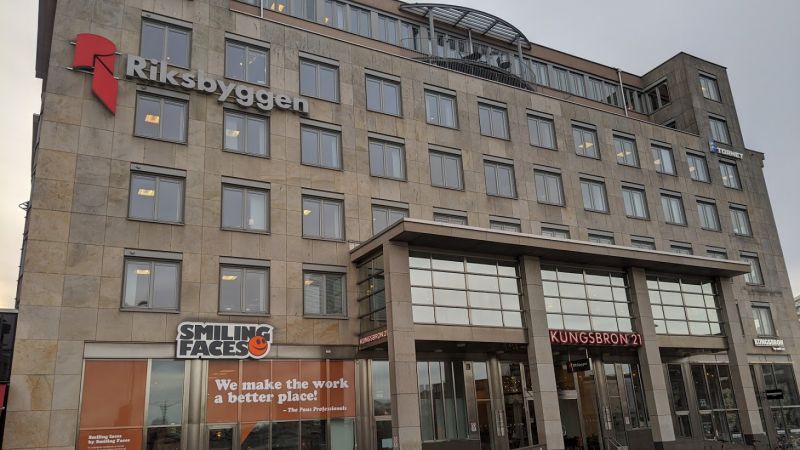
The Secretary General of Cooperative Housing International (CHI), Julie LaPalme, was in Stockholm, Sweden, in February where she met with two of CHI’s largest members, HSB Riksforbund and Riksbyggen. Both are large housing cooperatives offering cooperative homes for sale and for rent along with construction, development and management services throughout Sweden. Both cooperatives prioritise environmental sustainability and their efforts are paying off as they have both been named Most Sustainable Company in Sweden for two consecutive years.
How do these two Swedish cooperatives go about delivering on their sustainability commitments?
By Julie LaPalme
First of all, Riksbyggen’s sustainable development department includes an energy strategist, an environmental manager, a sustainability manager and sustainability specialists. They build with climate-enhanced concrete, install solar panels, are phasing out harmful chemicals and are investing in a fossil-free car fleet. They even install birdhouses and insect hotels to promote small-life wildlife and biodiversity!
In 2018, Riksbyggen developed a new strategic direction for 2019-2021. This includes reaching the UN’s SDGs - not an easy task considering that the construction and real estate sector account for about 10–40% of all environmental impact in Sweden. This commitment has led to Riksbyggen to collaborate with researchers, the business community, the City of Gothenburg and dedicated residents to develop the concept of Positive Footprint Housing, a new way to build and manage housing that is good for people, the environment and the economy. This means working to satisfy human needs without compromising the ability of future generations to meet their needs.
One of Riksbyggen’s recent developments, Brf Viva in Gothenburg, qualifies as Positive Footprint Housing. The cooperative used a new type of concrete with significantly lower climatic impact (30% less C02 emissions). It also introduced mobility apps for car and bike sharing, smart waste systems and are repurposing old bus batteries for solar energy storage. It’s no wonder Riksbyggen has won Environment Building of the Year for two consecutive years at Sweden’s Green Building Awards.
The second Swedish cooperative featured is HSB, another cooperative housing organisation that takes sustainability seriously. In 2016 HSB adopted a strategy for sustainable growth consisting of four overarching goals: resource efficiency, climate, sustainable services and products, and being an important community actor. They also support the UN’s SDGs number 5 and number 7 to 13 and contribute to three of the sixteen Swedish environmental quality goals under the categories of good built environment, limited climate impact and non-toxic environment.
Magnus Ulaner, HSB’s Environmental Director, states that the SDGs have been quite well received in Sweden. Both the business community and the government have jumped on this opportunity and have integrated the SDGs in their communications and overall strategy and HSB is no exception.
One of HSB’s biggest and most famous sustainable innovations is a ten-year project called Living Lab. It is a shared house where students from Chalmers University of Technology in Gothenburg have their own rooms but share a kitchen and other common areas. Two thousand sensors measure energy and water consumption, air pressure, C02 and many other measures, creating expansive research possibilities that feed into improved construction practices.
More information here https://www.housinginternational.coop/ebulletins/swedish-cooperatives/
Photo (c) Julie La Palme




